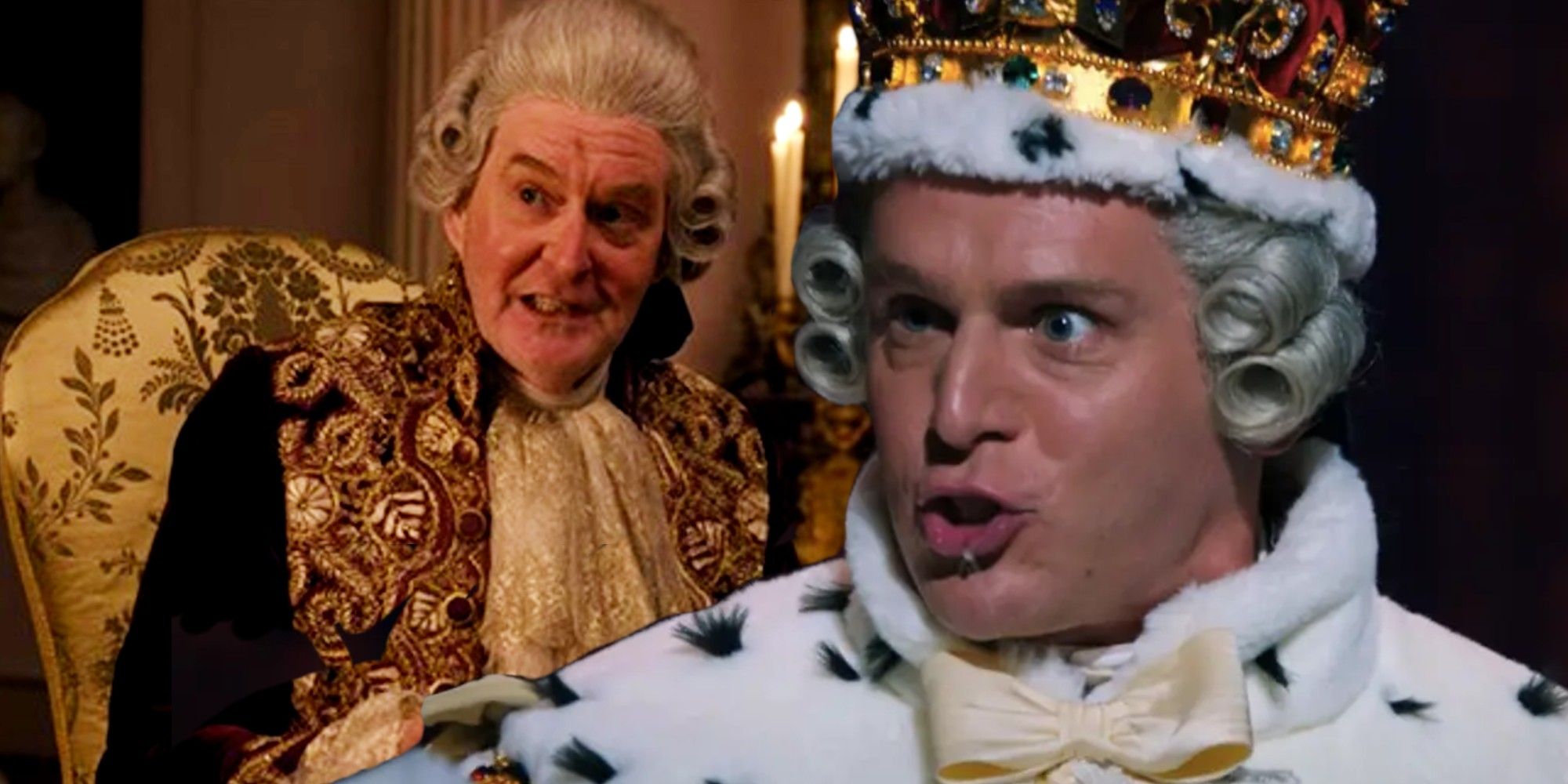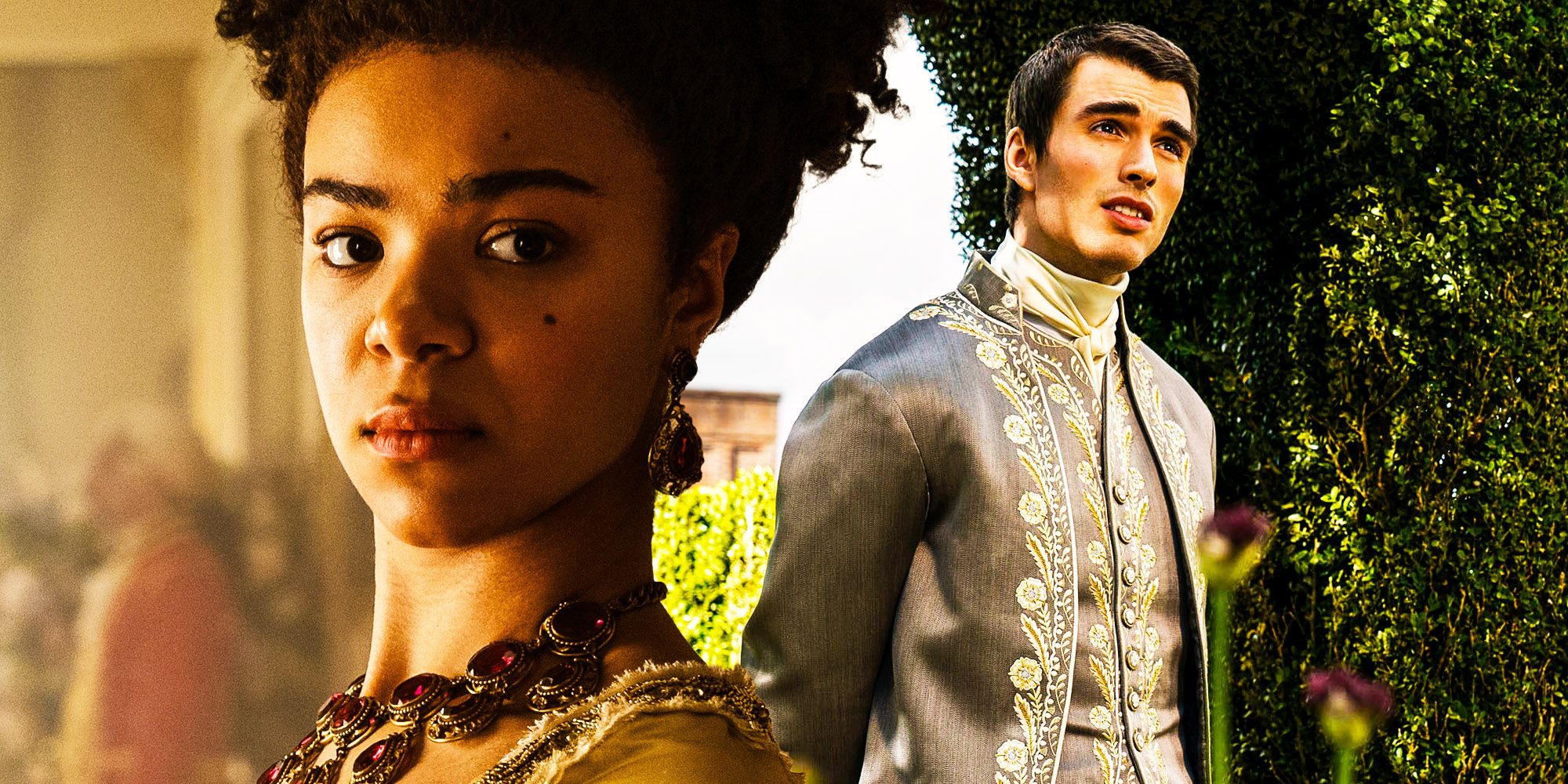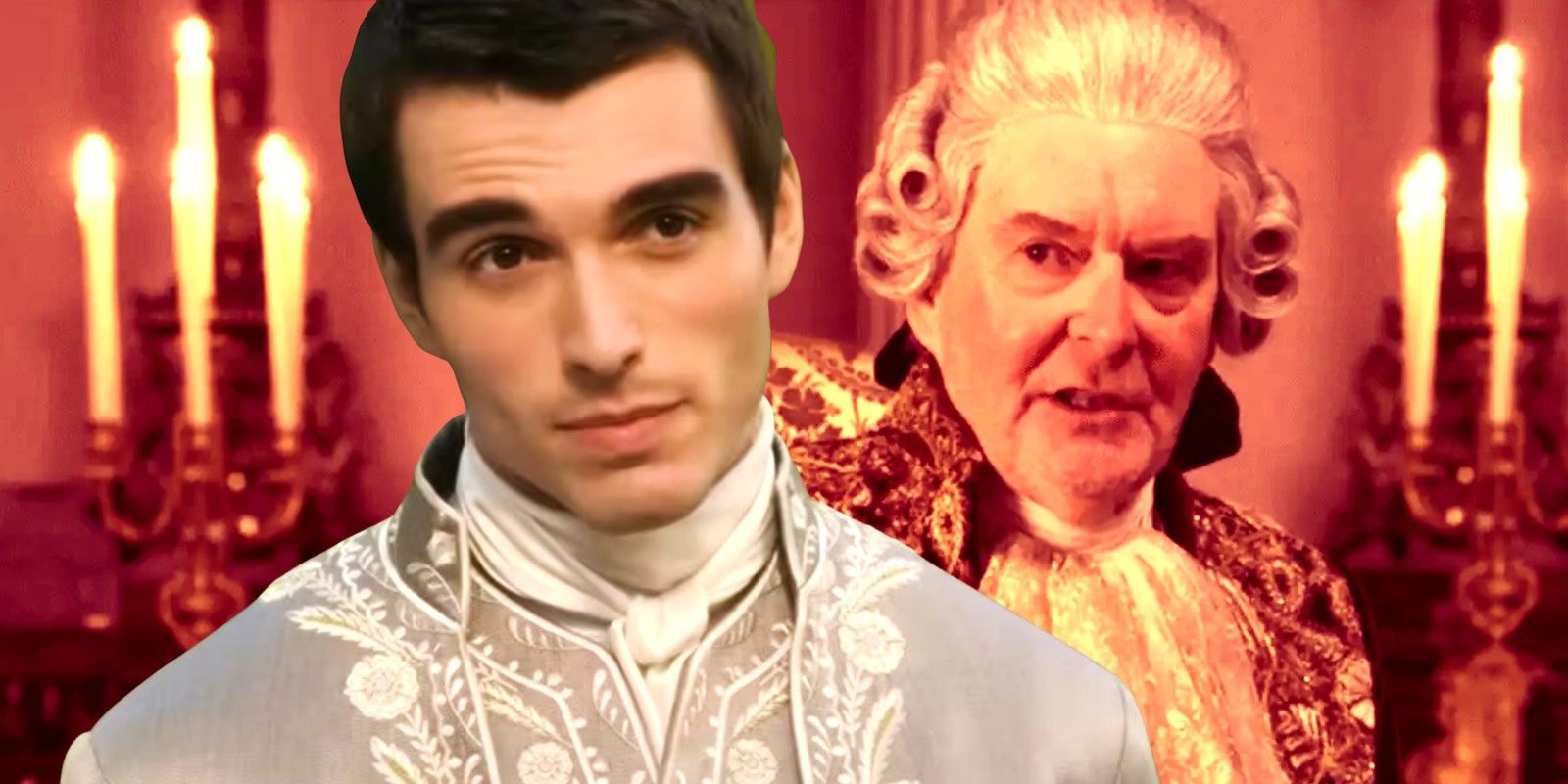What Happens To King George In Bridgerton: A Look At His Royal Struggle
Have you ever found yourself watching Bridgerton, completely captivated by the vibrant balls and whispered romances, only to pause when King George III appears on screen? It's a striking moment, isn't it, seeing the monarch in such a vulnerable state? Many viewers, so, wonder precisely what's going on with him.
The show, with its dazzling costumes and compelling stories, offers a glimpse into the life of this historical figure, but it certainly leaves many questions about his condition. People are quite curious about the real story behind his struggles, and how the series portrays them. You might be asking yourself, what exactly is happening to King George in Bridgerton?
We're going to explore the portrayal of King George III's illness within the beloved Bridgerton universe, including the recent "Queen Charlotte: A Bridgerton Story" spin-off. This will help us understand the historical background and the emotional weight his condition carries for the characters around him, especially his devoted Queen. It's a very poignant part of the story, you know.
- Masala Funcom
- Aayushi Jaiswal Ullu Web Series
- Brian Steel Net Worth
- Is David Bromstad Married
- Who Made That Mess You Did King
Table of Contents
- King George III: A Brief Biography
- The Royal Struggle in Bridgerton
- Historical Context: The Real King George III
- Exploring the Mystery of Illness and Loss
- The Future of King George in the Bridgerton Series
- Frequently Asked Questions About King George in Bridgerton
- A Final Thought on the King
King George III: A Brief Biography
King George III ruled Great Britain and Ireland for a very long time, from 1760 until 1820. He was, actually, the monarch during some truly significant historical events, like the American Revolution. His reign saw a lot of change and upheaval, both at home and across the globe. He was, in a way, a central figure in a time of great transformation.
He was a man who loved farming and science, and he had a deep interest in his family life. However, his later years were marked by a severe and prolonged illness that deeply affected his ability to govern. This period of his life is what Bridgerton primarily focuses on, showing the heartbreaking effects of his condition on him and those closest to him. It's a sad chapter, to be honest.
Personal Details and Bio Data of King George III
| Detail | Information |
|---|---|
| Full Name | George William Frederick |
| Born | June 4, 1738 |
| Died | January 29, 1820 |
| Reign | October 25, 1760 – January 29, 1820 |
| Spouse | Charlotte of Mecklenburg-Strelitz (Queen Charlotte) |
| Children | 15 (including George IV and William IV) |
| Notable Events | American Revolution, Napoleonic Wars |
The Royal Struggle in Bridgerton
The Bridgerton series, and its prequel "Queen Charlotte," do not shy away from showing King George's declining health. His appearances are often brief but impactful, providing a stark contrast to the lively court. It's a pretty stark reminder that even royalty faces profound personal challenges, you know.
His illness is a major plot point, especially in "Queen Charlotte," where we see the early days of his struggles and how they shaped his relationship with the Queen. The show, in a way, explores the immense pressure and sorrow that his condition brought upon the royal family. It's a very emotional core to the story, actually.
How Bridgerton Shows His Illness
In Bridgerton, King George III is usually depicted in a state of confusion, often speaking nonsensically or reliving past events. He can be seen wandering the palace, sometimes appearing disoriented or distressed. This portrayal, arguably, highlights the profound mental decline he experiences. The show uses these moments to create a sense of pathos and to show the burden on Queen Charlotte, too.
The series doesn't explicitly name his condition, but it visually conveys its devastating impact. We see him in various stages of his illness, from moments of relative clarity to periods of extreme agitation. It's a pretty raw depiction, in some respects, of what such an illness might look like. The show, frankly, doesn't sugarcoat it.
Queen Charlotte's Devotion
A central theme woven throughout Bridgerton, and especially in "Queen Charlotte: A Bridgerton Story," is the Queen's unwavering devotion to her husband. She carries the weight of his illness with immense dignity and sorrow. Her love for him, even amidst his decline, is truly one of the most touching aspects of the entire series, you know.
She constantly seeks ways to help him, from trying different treatments to simply being present for him, even when he doesn't recognize her. Her dedication is a powerful testament to their bond, and it shapes much of her character. It's a very strong emotional anchor for the story, that is.
Historical Context: The Real King George III
The Bridgerton series takes creative liberties with historical events and characters, but King George III's illness is rooted in fact. The real monarch did suffer from a debilitating condition that led to his eventual withdrawal from public life. It's a pretty well-documented part of history, actually.
His health problems began much earlier than some might realize, with episodes of mental distress occurring periodically before becoming more permanent. This long struggle is a significant part of his true story. It's a rather sad reality for a person in such a powerful position, you see.
What Was His Illness?
For centuries, historians and medical experts debated the exact nature of King George III's illness. Many believed he suffered from porphyria, a genetic blood disorder that can cause neurological symptoms. This theory gained a lot of traction over time, as a matter of fact.
However, more recent research suggests that his symptoms align more closely with bipolar disorder or a form of dementia. The exact diagnosis remains a topic of scholarly discussion, but what is clear is that he experienced severe mental and physical decline. It's a complex medical mystery, still, in a way.
The Impact on the Monarchy
King George III's illness had a profound impact on the British monarchy and governance. As his condition worsened, his eldest son, George, Prince of Wales, had to step in as Regent. This period, known as the Regency era, is where Bridgerton is set, so.
The King's declining health meant that he could no longer perform his duties, leading to a significant shift in power. It was a time of great uncertainty for the country, too, as the stability of the crown seemed somewhat in doubt. This historical context really helps us understand the backdrop of the Bridgerton stories, you know.
Exploring the Mystery of Illness and Loss
King George's condition in Bridgerton, much like any severe illness, prompts deep questions about what happens when a person's mind begins to fade. It makes us think about the nature of life itself, and what it means to be truly present. People often wonder about these things when they see someone they care about struggle, you know.
When someone we love faces such a profound change, it can feel like a part of them is lost, even if they are still physically present. This experience is, in a way, similar to the feelings people have when death strikes a loved one, as the provided text mentions, "one suffers when a loved one dies." The emotional toll is immense, naturally.
The mystery of what happens to a person's consciousness, or "soul," during such an illness is something many ponder. The provided text touches on the idea of "what happens to the soul at death" and "where to turn for answers." While King George is still alive, his state raises similar profound questions about identity and existence. It's a very human reaction to seek some kind of understanding in the face of such profound changes, to be honest.
People look for comfort and answers during these difficult times. Some find solace in community, perhaps by attending meetings for worship, which the provided text notes are open to the public and happen twice each week. These gatherings can offer a sense of support and shared experience, like your own community. It's a way people cope, basically, with the hard things in life.
The hope of a better future, or the possibility of understanding what happens beyond our current experience, can be a source of strength. The provided text speaks of a "sure hope" and "the truth about the soul matters," which can give people a unique prospect when facing loss or severe illness. It's about finding some peace, really, in uncertain times.
For instance, the annual Memorial of Jesus Christ’s death, observed by Jehovah’s Witnesses around the world on April 2, 2026, is a time for many to reflect on life, death, and the hope of resurrection. The Bible tells of nine people that were resurrected, and this gives some people a sense of future possibility, like your own hopes. This kind of reflection, you know, can offer a different perspective on suffering and loss.
Even though we try hard to avoid doing anything that would hurt ourselves or others, mistakes happen, and life brings challenges. The King's story is a powerful reminder of this. People, too, seek the best possible care for themselves and their families when illness strikes, as the provided text notes about medical treatment. It's about doing what you can, after all.
The King's condition, in a way, brings to mind the deep questions people ask about life's end. "What happens when we die?" and "Can the dead live again?" are questions many consider, as Ecclesiastes 9:5 and Acts 24:15, mentioned in the text, offer insights. It's a universal human experience to wonder about these things, naturally.
Jehovah knows what happens to us when we die, and he has told us that when a person dies, his life ends; death is the opposite of life. This perspective, shared in the provided text, offers a clear definition for some. It's a very direct way of looking at it, you know.
The Bible's definition of the soul is simple, consistent, and unencumbered by complicated philosophies and superstitions of men. This approach, discussed in the provided text, can offer clarity for those seeking answers about "what happens to the soul at death." It's about finding clear answers, essentially.
The King's story in Bridgerton, then, becomes more than just a plot device; it's a window into the human experience of dealing with profound illness, loss, and the enduring search for understanding and hope. It makes you think, doesn't it, about life's big questions. Learn more about life's big questions on our site, and link to this page about finding comfort in community.
The Future of King George in the Bridgerton Series
As Bridgerton continues, King George III's presence will likely remain a somber backdrop, reminding us of the fragility of life and the burdens of royalty. His condition provides a constant source of quiet heartbreak for Queen Charlotte, shaping her actions and her character arc. It's a rather powerful element of the show, you know.
The "Queen Charlotte" spin-off has given viewers a deeper look into his younger years and the onset of his illness, adding layers of understanding to his portrayal in the main series. This added context helps us appreciate the depth of his relationship with the Queen. It's really quite a touching backstory, that is.
While his direct involvement in the main Bridgerton storylines might be limited due to his health, his impact on Queen Charlotte and the court is undeniable. His struggle is a constant reminder of the weight of the crown and the personal sacrifices made by those who wear it. It truly adds a lot of emotional depth to the whole Bridgerton universe, you see.
Frequently Asked Questions About King George in Bridgerton
What kind of illness does King George have in Bridgerton?
In Bridgerton, King George III experiences a severe mental decline, shown through confusion, nonsensical speech, and disorientation. The show doesn't give a specific medical diagnosis. It visually portrays the devastating effects of a chronic, debilitating condition. This portrayal, arguably, emphasizes the emotional impact on his family and court.
Is King George III's illness portrayed accurately in Bridgerton?
Bridgerton takes inspiration from historical accounts of King George III's real-life illness, which caused periods of severe mental distress. While the show captures the general essence of his struggles, it dramatizes certain aspects for storytelling purposes. Historians still debate the exact medical cause of his condition, so the show's depiction is, in a way, an artistic interpretation rather than a precise medical record.
Does King George III recover in Bridgerton?
No, King George III does not recover in the Bridgerton series. His illness is portrayed as a progressive and permanent condition. While there might be brief moments of lucidity, his overall state continues to decline throughout the show, and his role is largely that of a monarch incapacitated by his health. His continued struggle is a pretty consistent theme, you know.
A Final Thought on the King
King George III's story in Bridgerton is a poignant reminder that even figures of immense power can face profound personal challenges. His illness casts a long shadow over the glittering world of the Ton, adding a layer of realism and human emotion to the romantic drama. It's a very powerful element, you see, that grounds the show.
His struggle, and Queen Charlotte's enduring love, highlight themes of devotion, resilience, and the quiet suffering that often occurs behind closed doors. It encourages us to look beyond the surface and appreciate the deeper stories at play. So, the next time you watch Bridgerton, take a moment to consider the King's journey and the impact it has on everyone around him. It's truly a heartbreaking yet compelling aspect of the series.
- Subway Surfers Unblocked School Chromebook Glitch
- Where Is Frankie Katafias Download
- Addrom Bypass
- 9vids
- Fintechzoomcom Bitcoin

Why Bridgerton's King George Completely Changes Hamilton's Villain

Queen Charlotte: Why King George Became King So Young

Queen Charlotte: What Was Wrong With King George (And Why He's Hidden)